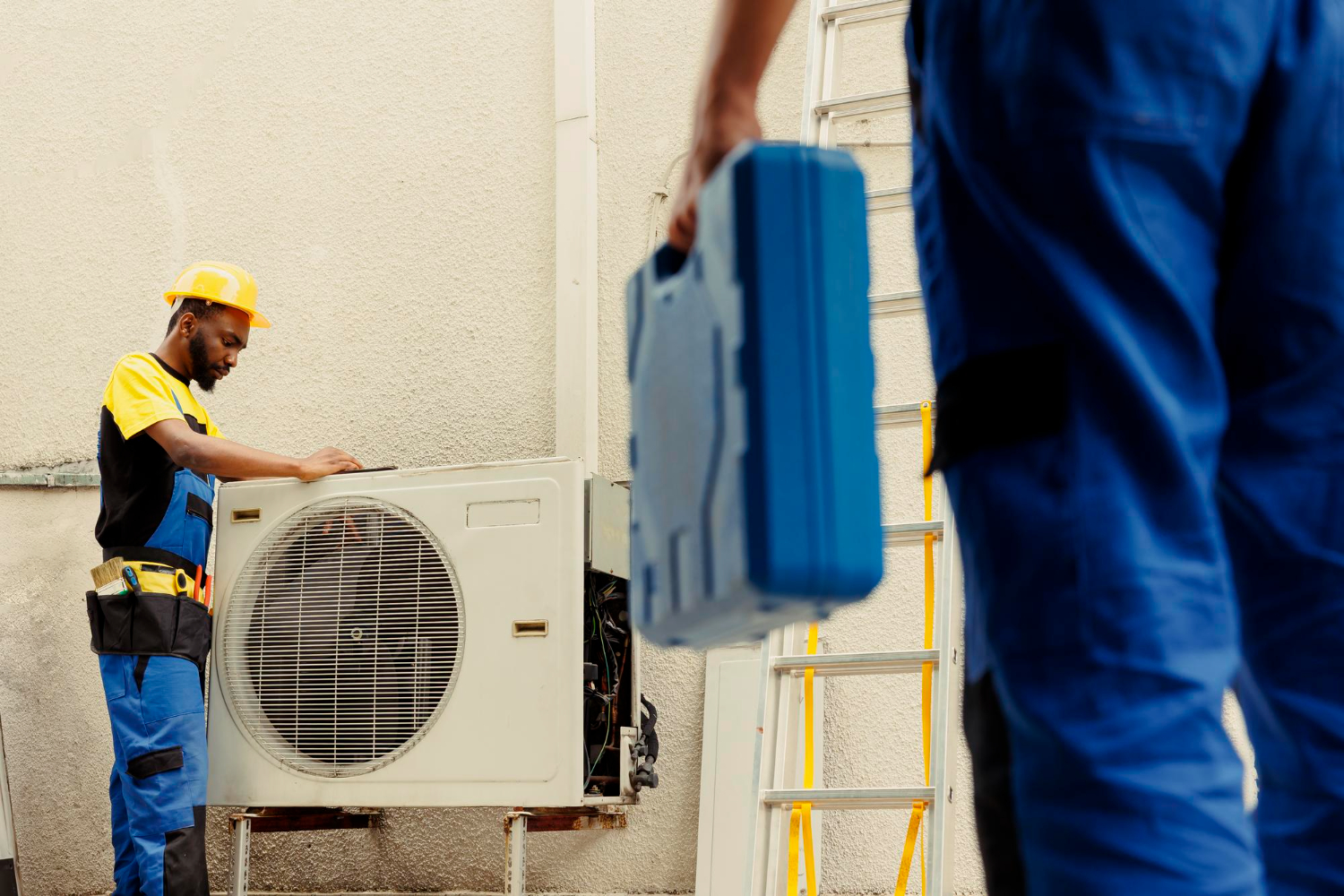Keeping your HVAC system in top shape is essential for a comfortable and healthy home environment. Regular maintenance ensures that your heating and cooling systems work effectively throughout the year. Without proper upkeep, you risk encountering unexpected breakdowns, reduced efficiency, and increased energy bills.
Understanding the Basics of HVAC Maintenance
HVAC maintenance involves a series of tasks designed to keep your heating, ventilation, and air conditioning systems running smoothly. By understanding these basics, homeowners can better ensure their systems’ longevity and efficiency. One fundamental aspect of HVAC maintenance is regularly replacing or cleaning air filters. Dirty filters obstruct airflow, causing the system to work harder and less efficiently. Replacing filters every one to three months helps maintain optimal airflow and overall performance.
Another essential maintenance task is cleaning the outdoor unit. Over time, dirt, leaves, and other debris can accumulate around the condenser unit, hindering its ability to release heat. Keeping the area around the outdoor unit clear ensures that it functions effectively. Additionally, it is important to check the thermostat settings. Ensuring your thermostat is working correctly and set to optimal temperatures can prevent your system from running unnecessarily.
Lastly, regular inspections by our professionals are critical. These inspections often include checking refrigerant levels, inspecting ductwork, and ensuring all electrical connections are secure. Understanding these basic tasks not only helps you recognize when your system needs attention but also highlights the importance of scheduling regular professional maintenance to keep your HVAC system in top condition.
Key Benefits of Regular HVAC Maintenance
Regular HVAC maintenance offers numerous benefits that enhance the comfort, efficiency, and longevity of your system. One key benefit is improved energy efficiency. A well-maintained HVAC system operates more efficiently, using less energy to heat or cool your home. This can lead to significant savings on your energy bills over time. Regular maintenance helps identify and address issues such as dirty filters, blocked vents, and refrigerant leaks that can reduce system efficiency.
Another important benefit is increased system lifespan. Just like any other mechanical system, HVAC systems need regular care to function optimally and avoid premature wear and tear. Routine maintenance helps prevent minor issues from escalating into major problems that could shorten the life of your HVAC unit. By committing to regular check-ups, you can ensure your system serves you well for many years.
Moreover, regular maintenance enhances indoor air quality. Clean filters and ducts ensure that the air circulating in your home is free from dust, allergens, and other pollutants. This is especially important for those with allergies or respiratory issues, as a well-maintained system helps maintain a healthy living environment.
Regular HVAC maintenance also reduces the risk of unexpected breakdowns. Preventive care allows our technicians to catch potential issues early before they lead to costly repairs or replacements. Overall, the benefits of regular HVAC maintenance include improved efficiency, extended system lifespan, enhanced air quality, and fewer unexpected costs, making it a wise investment for any homeowner.
Critical Maintenance Tasks You Should Never Skip
Certain maintenance tasks are critical to ensure your HVAC system operates efficiently and reliably. Ignoring these tasks can lead to decreased performance and increased risk of breakdowns. Here are some key maintenance tasks you should never skip:
1. Filter Replacement: Regularly replacing or cleaning the air filters is one of the simplest but most important tasks. Dirty filters restrict airflow, making the system work harder and reducing its efficiency. Aim to replace filters every one to three months, depending on usage and the type of filter.
2. Cleaning Coils: Both the evaporator and condenser coils can collect dirt over time. This dirt reduces the coils’ ability to absorb and release heat. Regularly cleaning these coils ensures that your system can effectively manage temperature and operate efficiently.
3. Checking Refrigerant Levels: Proper refrigerant levels are crucial for the cooling capabilities of your HVAC system. Low refrigerant levels can cause the system to overheat and fail. Our professionals can check and top off refrigerant levels during regular maintenance visits.
4. Securing Electrical Connections: Loose or faulty electrical connections can lead to unsafe operation and reduce the lifespan of your system’s components. Regular inspections ensure that all connections are secure and functioning properly.
5. Inspecting and Cleaning Ducts and Vents: Clean ducts and vents to ensure that air flows freely throughout your home. Blockages or leaks in ductwork can reduce efficiency and air quality. Regular inspections and cleaning help maintain optimal performance.
By prioritizing these critical tasks, you can prevent potential issues, enhance efficiency, and extend the life of your HVAC system.
When to Call Our Professionals for HVAC Maintenance
Even with regular maintenance, there are times when professional intervention is necessary. Recognizing the signs early can prevent small issues from becoming major problems. Here are some situations when you should call our professionals for HVAC maintenance:
1. Unusual Sounds: If your system is making strange noises such as banging, clanking, or squealing, it could indicate a mechanical issue. These sounds should be inspected promptly to avoid further damage.
2. Inconsistent Temperatures: If some rooms in your home are significantly warmer or cooler than others, this can point to issues with your system’s balance or airflow. Our technicians can diagnose and resolve these problems to restore even heating or cooling.
3. Frequent Cycling: If your HVAC system frequently turns on and off, it might be due to an issue with the thermostat, dirty filters, or an improperly sized system. Frequent cycling can place unnecessary strain on your components and should be checked by professionals.
4. Unpleasant Odors: Strange smells coming from your HVAC system, such as burning or musty odors, can indicate problems such as electrical issues, mold, or a gas leak. These require immediate professional attention for safety and proper resolution.
5. Increased Energy Bills: A sudden spike in your energy bills without a corresponding increase in usage suggests inefficiency in your system. Our technicians can assess your system for any issues and recommend the necessary repairs or maintenance.
Recognizing these signs ensures that your HVAC system continues to operate efficiently and safely. Prompt professional intervention can help maintain comfort and avoid costly repairs.
Conclusion
Maintaining your HVAC system is crucial for ensuring a comfortable and healthy home environment. From understanding the basic components of your system to recognizing the key benefits of regular maintenance, it is clear that proactive care is essential. By performing critical maintenance tasks like replacing filters, cleaning coils, and checking refrigerant levels, you can prevent small issues from becoming major headaches. Additionally, knowing when to call our professionals for expert help ensures that your system remains in optimal condition.
Regular HVAC maintenance improves energy efficiency, extends the lifespan of your system, and enhances indoor air quality. It reduces the risk of unexpected breakdowns and costly repairs, providing peace of mind for homeowners. Investing in routine maintenance is a wise decision that pays off in comfort and savings.
For a functioning HVAC in Blythe, CA, trust the experts at Johnson Refrigeration Inc. Our skilled professionals are here to keep your heating and cooling systems running smoothly. Contact us today to schedule your maintenance service and ensure your home remains comfortable year-round.



